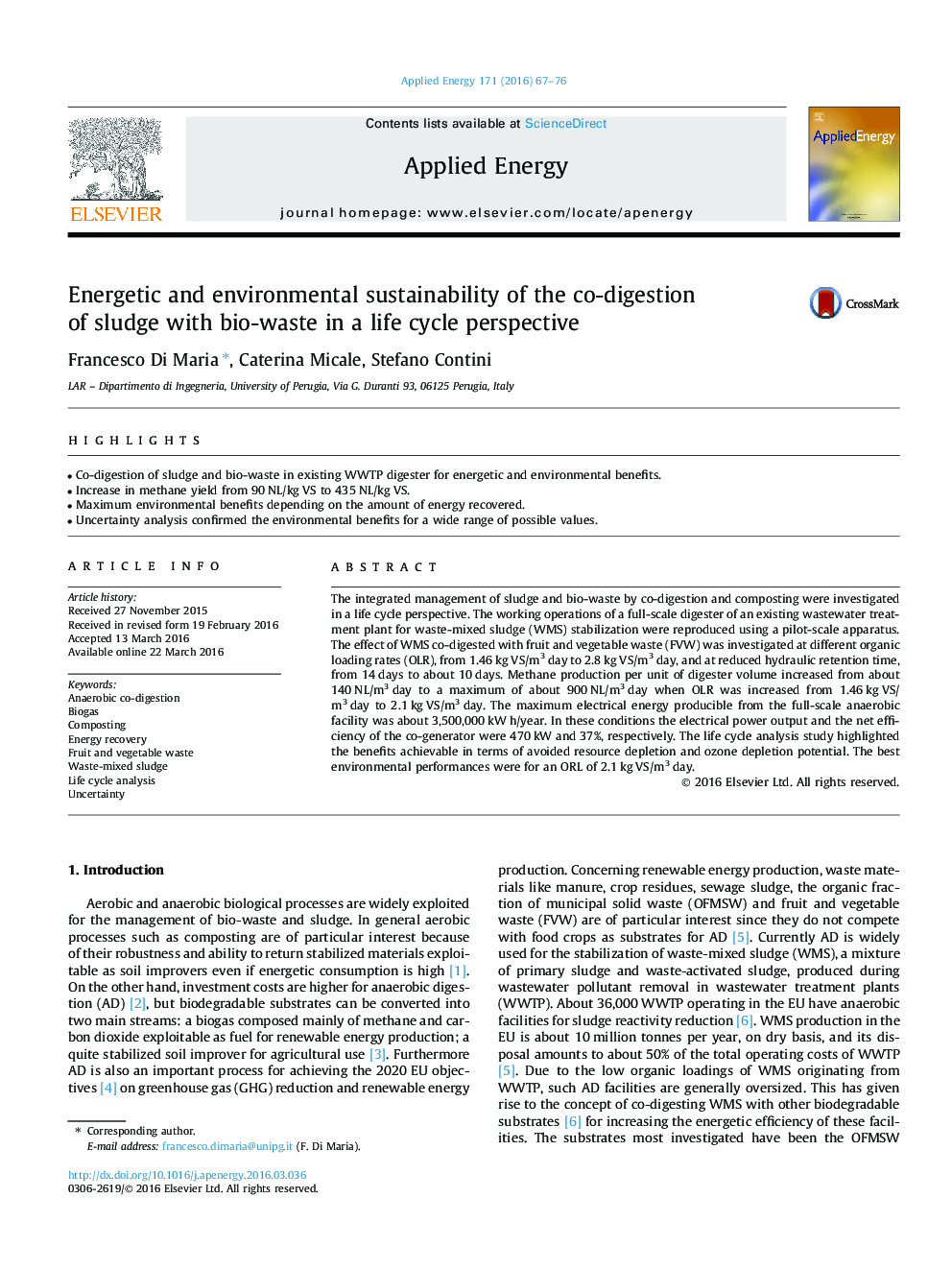| Article ID | Journal | Published Year | Pages | File Type |
|---|---|---|---|---|
| 6683254 | Applied Energy | 2016 | 10 Pages |
Abstract
The integrated management of sludge and bio-waste by co-digestion and composting were investigated in a life cycle perspective. The working operations of a full-scale digester of an existing wastewater treatment plant for waste-mixed sludge (WMS) stabilization were reproduced using a pilot-scale apparatus. The effect of WMS co-digested with fruit and vegetable waste (FVW) was investigated at different organic loading rates (OLR), from 1.46 kg VS/m3 day to 2.8 kg VS/m3 day, and at reduced hydraulic retention time, from 14 days to about 10 days. Methane production per unit of digester volume increased from about 140 NL/m3 day to a maximum of about 900 NL/m3 day when OLR was increased from 1.46 kg VS/m3 day to 2.1 kg VS/m3 day. The maximum electrical energy producible from the full-scale anaerobic facility was about 3,500,000 kW h/year. In these conditions the electrical power output and the net efficiency of the co-generator were 470 kW and 37%, respectively. The life cycle analysis study highlighted the benefits achievable in terms of avoided resource depletion and ozone depletion potential. The best environmental performances were for an ORL of 2.1 kg VS/m3 day.
Keywords
Related Topics
Physical Sciences and Engineering
Energy
Energy Engineering and Power Technology
Authors
Francesco Di Maria, Caterina Micale, Stefano Contini,
